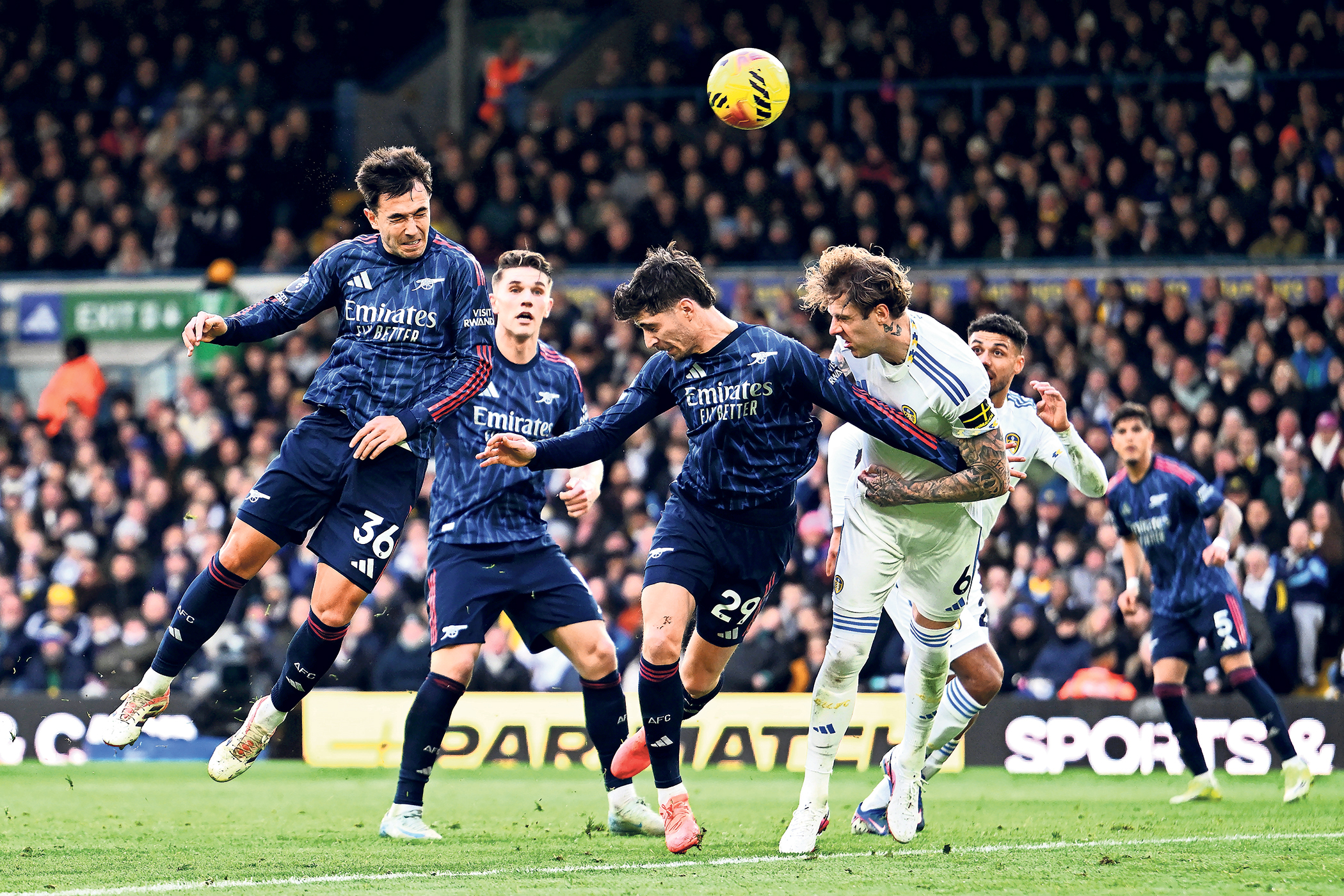These are the moments that last forever, no matter how the story ends, the milestones along the journey that are so pure and so rare that they become destinations in themselves. Everything, just then, felt golden: Hearts had beaten Celtic, their lead at the top of the Scottish Premiership yawning to an improbable eight points. Tynecastle was basking in warm, bright sunshine, singing the praises of their glorious Hearts.
And then, as The Heart’s Song faded away and the opening bars of Boney M kicked in, the stadium turned at one to the upper reaches of the main stand. Somewhere in there, habitually discreet, was the man they hold responsible for what is – or at least what, with just a drop of luck, might yet be – starting to unfold in Gorgie: Tony, Tony Bloom.
It should not need to be said that there is a long way to go. There is no such thing as a title decider in October. Celtic might be in a rut, a club locked in an unhappy stasis, and Rangers might – in the words of Martin O’Neill – be something of a “basketcase,” but Glasgow’s feuding twins have more money, more resources, more players. No matter how many points they accrue, Hearts will remain the outsiders.
Everyone involved knows that. “If we can find a consistent level of performance, there is no doubt we can make the points up,” as Brendan Rodgers, the Celtic manager, said. It is not a romantic sentiment and may not echo the thoughts of many of the team’s supporters, but it is correct.
His Hearts counterpart, Derek McInnes, was keen to stress the “huge advantages” Celtic have over not just his side, but everyone else, too.
Anything else, he knows, would play as giddiness. The title has not left Glasgow for four decades. Craig Gordon, Hearts’ reserve goalkeeper, may well be the only player in the league who was alive when both were cast into shadow by Alex Ferguson’s Aberdeen. Scotland is a country where, as one Hearts fan told The Observer last week, successive generations have been conditioned to see Celtic and Rangers as the alpha and the omega.
As the paeans to Bloom echoed around Tynecastle, though, for the first time in an extremely long time, it was just about possible to remember that nothing lasts forever. Hearts’ partnership with Jamestown Analytics, the data analysis company linked to the Brighton owner, is less than a year old. Bloom only formally took his stake in the club in June.
“It’s so early,” Rodgers said, three or four times, of the title race. The exact same sentiment applies to Bloom’s impact on Scottish football. In a matter of weeks, really, he has been able to turn Hearts into a credible challenger to Celtic this season; imagine what he might be able to do over the course of three or five or 10 years.
Related articles:
He has been helped by the self-immolation on both sides of Glasgow, of course. Common consensus is that Hearts will have to seize their opportunity this season; once one or both of Celtic or Rangers get their houses in order, raw economics will prove decisive, the natural order of things will assert itself once more. Bloom, in this line of thinking, has had the good fortune to arrive at precisely the right time.
An alternative explanation is available, one that fits rather more neatly with what we know of Bloom from his involvement in both Brighton and, to a slightly lesser extent, Union Saint-Gilloise, the team his adjutants have returned to prominence in Belgium. Bloom might be a gambler by profession and inclination, but gamblers know to leave as little as possible to chance.
Newsletters
Choose the newsletters you want to receive
View more
For information about how The Observer protects your data, read our Privacy Policy
He did, for example, not alight on Scotland by mistake. Hearts are unusually rich in unrealised potential: an under-resourced club in a wealthy, world-famous city, one that attracts millions of tourists every year. (This is the same logic that convinced another Premier League owner, Bournemouth’s Bill Foley, to take a stake in Hibernian.)
But they are also, crucially, part of a league that is ripe for disruption. Glasgow’s rivalry is so all-consuming, so toxic, so damaging that it encourages a chronic short-termism; it is a city where, as everyone proudly says, second is nowhere. In that landscape, neither club – even in happier, healthier times than now – is able to think much beyond the next trip to Ibrox or Celtic Park, the next trophy, the next title.
Bloom, it seems fair to assume, saw that as a competitive advantage: any club that was able to think a little more rationally, with a decent increase in their cashflow, would be able to close the gap, and close it fast. As he told The Observer earlier this year, he would not have been so bullish on his arrival if he did not believe what he was saying. Bloom is not much given to talking in public. He is certainly not inclined to grandstand.
In that, there should be encouragement way beyond Tynecastle. Hibs are not revelling in their neighbour’s success, of course, and Scotland is sufficiently tribal that there will be many who follow Aberdeen or Dundee United or Kilmarnock who might, deep down, prefer the maintenance of the Glaswegian hegemony than glory for Hearts. It is the same in Germany, say, where many fans feel that, if their club does not win the league, then it may as well be Bayern Munich; at least, that way, nobody else is happy.
But as the clouds broke over Tynecastle on Sunday afternoon and Bloom’s name rang out along the Gorgie Road, it did feel as though something had changed, and maybe not just for now. Whether Hearts win the league this season or not, Bloom has disturbed a balance of power so calcified that it seemed immobile. He has given Hearts – and by extension Scottish football itself – a jolt of energy, a sense of possibility. Things might not turn out differently this year. But they could, and that is no mean feat.
Photograph by Steve Welsh/PA Wire



